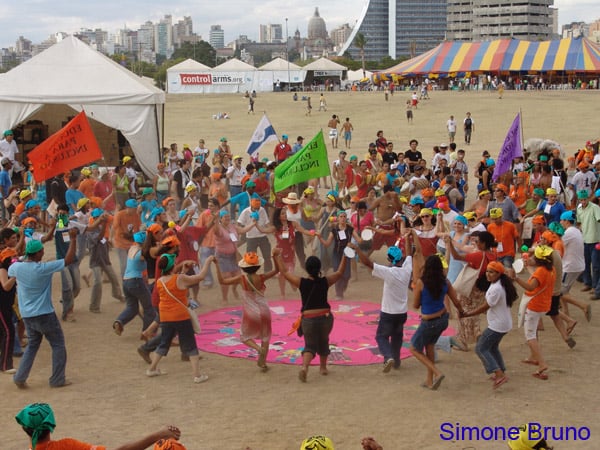The Future We Deserve/Citizen Centred Participation - Phil Green
Citizens should be able to influence decisions affecting the localities and communities in which they live, work and visit.
This is not about tolerating what other agencies might cede to us, but about us (now)[1] taking responsibility (for our own futures). About us playing our part, according to our abilities, in co-designing and co-creating our own futures.
We share a planet with limited and sometimes scarce resources. In a more resource constrained future[2] it seems to make sense to make best use of our greatest resource - us, our ingenuity and creativity. For example it's arguable that we haven't got much hope of meeting, or better still even exceeding our carbon reduction targets unless we're all involved. So we accept some responsibility for all of the following:
- fair shares. We do not accept the inevitability of crude and harmful imbalances of access to resources or influence.
- fair shares between current and future generations
- a fair pattern of influence, for example between local and wider communities
- mediation between disparate interests
We are responsible for the great transition, centred on our growing involvement and influence, our growing citizen and community self-actualization.[5] We are responsible for the great transition in both our local and wider communities. We all have a part to play. We do not accept any tendency to view any citizens or communities as disposable.
It's Ok to start with one's local community. We need to learn and develop confidence in our abilities to articulate the futures we choose, and to practice mediation between potentially conflicting choices. With modern technolgy we have the means to ensure proper and adequate recognition for this valuable work via transparency. Transparency via fully open and complete online record of involvement and influence, for purposes of recognition, reward, respect, trust, and, last but not least, learning and not having to keep reinventing the wheel. A quantum leap in creativity to meet contemporary challenges.
Participation with whom? - citizen to citizen as the norm, not a luxury handed down to us by benevolent yet archaic power structures. A role for experts or specialists, of course, via deliberative democracy, knowledge and evidence based decision making. But increasingly knowledge and expertise is not restricted to the few and we all have a role in ensuring knowledge is used wisely. Assessment of needs and aspirations must involve the communities affected. Local knowledge helps find solutions which work.
Civil society 2.0 - Open, wholly inclusive and totally transparent networks which enable the wellbeing of us all need to supercede the narrow interests of inflexible establishments and institutions. Gov 2.0 - Is there a role for government? yes, but also, increasingly it must be as the enabler of the wellbeing of us all.
A Wiser Rio 2012,[6] a Rio which made optimum use of, included, involved, nurtured and helped grow the creativity, ingenuity and innovation of mass participation would not be a bad thing in this context.

